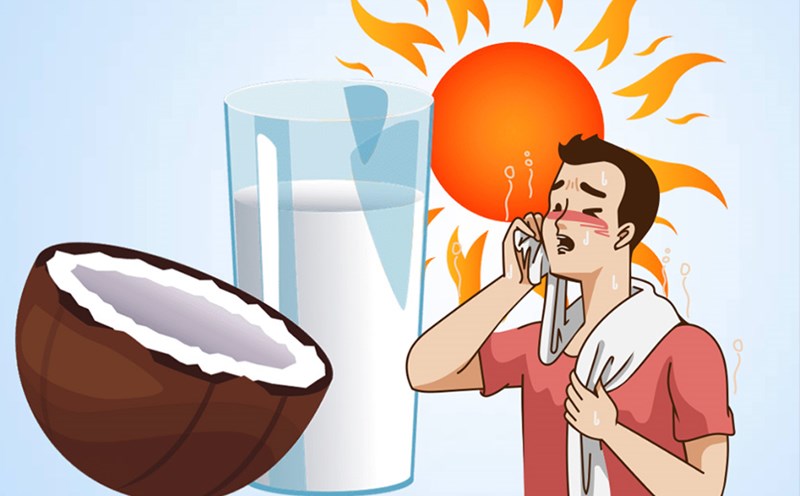When the body gives a warning
Excessive exposure to sunlight not only causes skin burns but also affects the entire system in the body. Initial symptoms are usually mild, but if not treated promptly, it can lead to heatstroke, a medical emergency.
The first obvious sign is skin changes. The skin exposed to the sun can be red, burnt, or even swollen. Many cases of sunburn do not appear immediately but only appear clearly a few hours later.
Another warning is muscle cramps. When the body is dehydrated and electrolytes are lost due to high sweating, sodium and potassium levels decrease, and muscles are prone to cramps and pain. Sudden withdrawal is a reminder to re hydrate and relieve electrolytes immediately, otherwise the condition can get worse very quickly, says Dr. Sohaib Imtiaz, MD, UK health expert.
In addition, nausea and vomiting are also manifestations of dehydration. In this case, it is necessary to supplement a small sips of water or electrolyte replenishment solution instead of drinking a lot at the same time.
When to seek medical help?
If fatigue, muscle weakness, and dizziness appear, your body is in the stage of exhaustion due to heat. Decreased blood supply to the brain can make you dizzy, even faint.
The most dangerous case is confusion or unconsciousness, accompanied by body temperature above 39°C. This is a late sign of heatstroke, showing that the body has lost the ability to regulate its temperature. "When encountering this condition, the patient needs to be taken to a medical facility immediately. The delay can cause multiple organ damage, Dr. Imtiaz emphasized.
For initial treatment, it is necessary to remove the patient from the sun, place in a cool place, use cool water or a wet towel to cool down. Absolutely do not give water if the patient is unconscious, instead call an ambulance.
How to prevent excessive sun exposure
According to research by a group of international experts published in the International Journal of Environmental Research and Public Health (2021), people vulnerable to heat include young children, the elderly, outdoor workers, pregnant women and people with chronic diseases.
To reduce the risk, you should:
Limit going out during hot weather.
Drink enough water, supplement electrolytes when doing long-term outdoor activities.
Wear light-colored clothes, carefully cover with a hat, glass, and sunscreen.
Increase your water intake during peak hot days.
Excessive exposure to sunlight not only causes immediate discomfort but also leaves long-term consequences, from premature skin aging to dangerous complications. Early identification of signs and proper care are the keys to protecting health in harsh weather.











